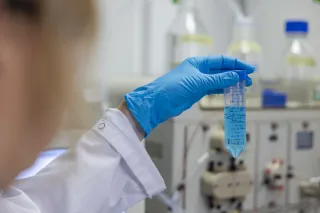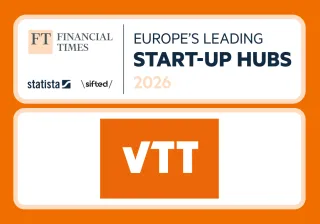Tightening climate targets in Finland and the EU are forcing industry to reduce carbon dioxide emissions. Switching to electricity to replace fossil fuels is a growing trend in industry. VTT is developing electrically heated reactor technology that could significantly reduce emissions from the chemical industry.
The electricity consumption of industry is expected to double in the next few decades, as industrial companies strive to reduce the use of fossil fuels with clean electricity. However, using electricity in industrial processes requires many new solutions that are not yet commercially available.
A VTT research project has developed technological solutions for the future of the chemical industry. Many of the key reactions of the chemical industry require a very high temperature, nearly 1000 °C, which is achieved by burning fossil fuels. This results in a high level of CO2 emissions.
VTT's E-REACTOR project solves this challenge with an electrically heated reactor. “The principle is the same as with electrical resistance heating. What's new is applying it to very high temperatures and conditions where you catalyse chemical reactions. The solution also has to be scalable to an industrial capacities, with electricity use in the range of dozens of megawatts”, explains Senior Researcher Ilkka Hannula from VTT.
Multiple applications for the electrical reactor
An electrically heated reactor could replace the use of fossil fuels in many of the key processes that require high-temperature heat in the chemical industry. One of the obvious applications is natural gas reforming. The electrification of this process alone would lead to significan reductions in global industrial CO2 emissions. There are other similar chemical reactions, and the investigation of potential applications continues as the project progresses.
The prototype of the electrical reactor has been completed, and it has been successfully tested in laboratory conditions. The next stage is testing the reactor in long-term use, followed by scaling up to the industrial level. “An industrial application could be viable by the end of the decade”, estimates Hannula.
The electrically heated reactor has been developed as part of VTT's iBEX 2020 programme. The programme is an example of a new way of conducting applied research in an increasingly solution-oriented manner. The projects tackle large global challenges and look for radical solutions in cooperation with industry and society. The iBEX programme is a runway for inventions that change the world.





